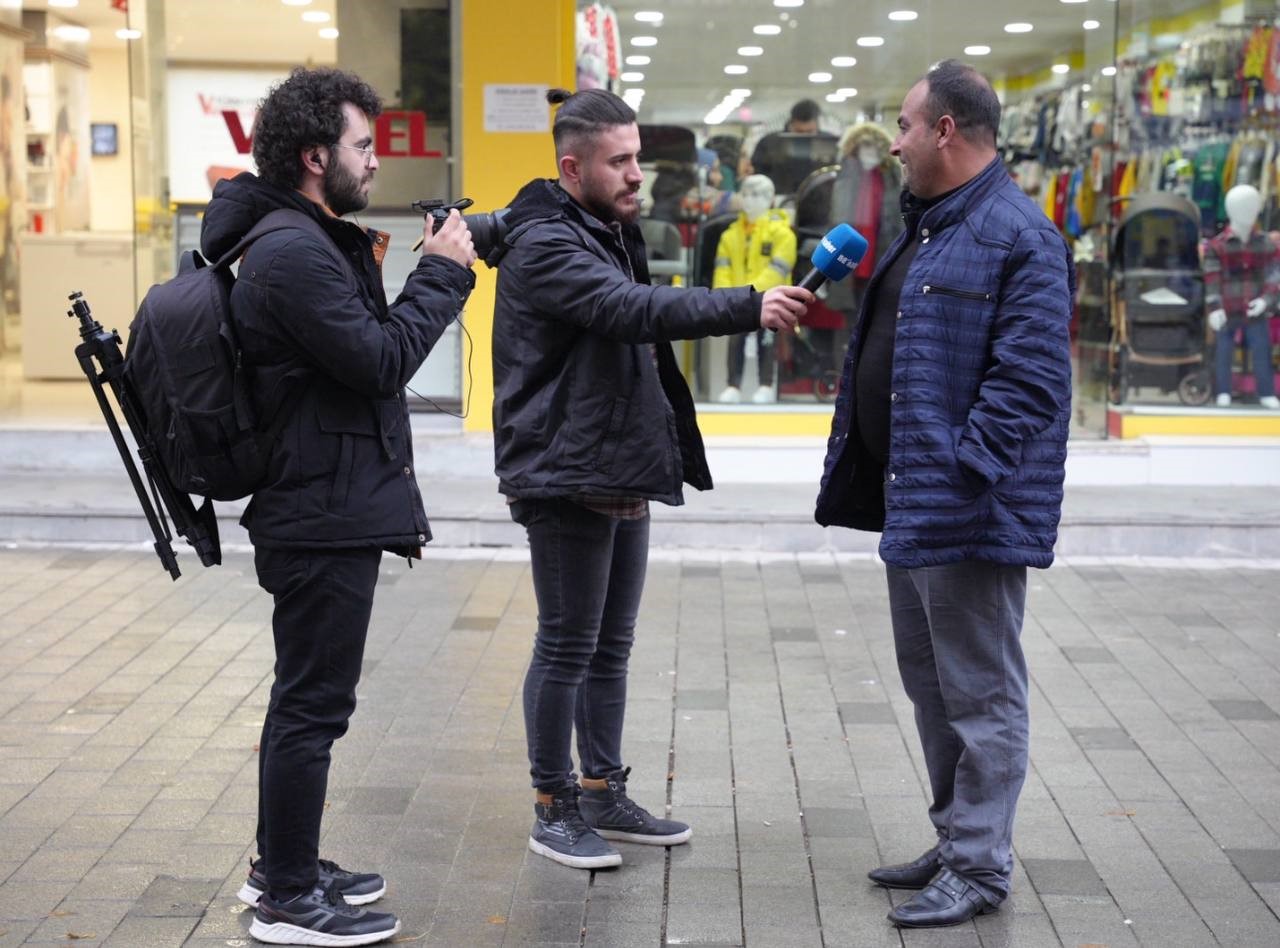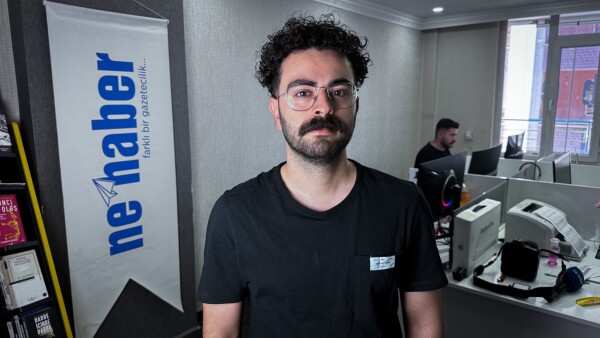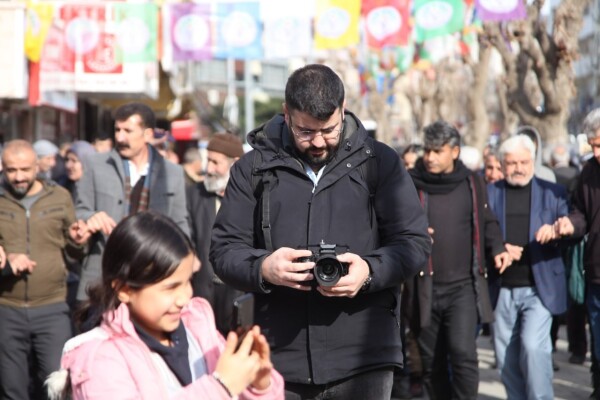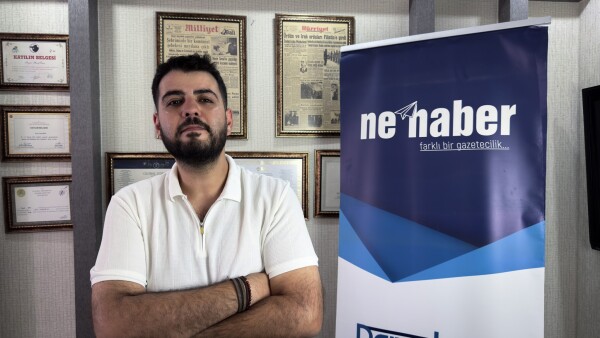
It's not often that a small local media outlet takes on a global media giant, but that’s what happened when Ne Haber Agency, a news website run by young journalists in the city of Siirt in Turkey's southeastern Anatolia region, spotted an error in a BBC report.
A 2017 BBC news story reported that they had met the last people who speak Chaldean, in the village of Ekindüzü (or Hertevin in Kurdish), the Hertevin dialect of Aramaic or Hertevince, as the Kurds of the region call it. It stated, “Nevzat Kızılay, [a villager] ...is one of only two people who can speak this language."
However, the Ne Haber Agency knew otherwise. Over three years earlier, they had documented the Chaldeans in Europe who speak this dialect.
“We found audio recordings of the dialect spoken at Hertevin, Siirt, recorded 50 years ago. We documented both this ancient language-dialect and the last Christians of Siirt who spoke this ancient language. In our documentary, we revealed that none of the current inhabitants of the village can speak Chaldean fluently, and only a few villagers know even a few words about daily life,” says Yusuf Elik, one of Ne Haber’s three founders.

Yusuf Elik, Yusuf Eren and Bünyamin Aybek were journalism graduates and students when they founded Ne Haber with the financial support of family members.
"We saw that all other media outlets in Siirt followed a traditional line, and most of them are affiliated with the government. There was no alternative media in the city, and no one was producing the kind of content that people really wanted," says Yusuf Elik.
Yusuf explains that Siirt is a multicultural city with a rich history and diverse cultural and natural beauties. While Kurds make up most of the city's population, there are also Arab, Assyrian and Yezidi communities in the city. Siirt is also one of the poorest cities in Turkey and local civic life and the media have been severely affected by the difficult political situation in the country.
Yusuf Elik explains that 'Ne Haber' means 'What's up?' and that is exactly what the media set out to do. The Ne Haber team tell the stories of the towns and the region and communicate them through their website, and on social media platforms including Twitter, Facebook, YouTube and TikTok, reaching different audiences on each platform.
"We wanted to be different," Yusuf explains. "We knew that video content was important to our audience. Initially, we used our phones to shoot, but over time we were able to invest in professional equipment and improve the quality of our video production."

As a rights-based media organisation, the journalists work hard to tell stories not covered in traditional media covering issues such as minority rights, LGBTQ+ issues, and economic matters, giving a voice to disadvantaged groups in society. Although most of the news published is in Turkish, they also produce material in Kurdish, and many videos feature Kurdish subtitles and speeches. Yusuf explains that this editorial line is unique and it has meant tensions with the local administration.
The journalists explain that when government-appointed trustees were appointed in 2016 rather than the mayors elected from the pro-Kurdish party, this had a bad effect on local media as freedom decreased, engendering an atmosphere of fear and hopelessness. In the predominantly Kurdish southeastern Anatolia region, any voices critical of the AKP have come under intense scrutiny.
"We are excluded from events to which other journalists are invited. This meant it was difficult for us to report on local administrative issues," says Yusuf.
In addition, several intimidation cases were filed against Ne Haber and that they were sued by the trustee mayor himself.
Despite, these challenges, Ne Haber’s readership has remained strong. As Yusuf sees it, their readership know the agency has an independent agenda and that it produces reliable news. They also receive pro bono legal support from local bar associations and individual lawyers.

The team believe that the results of the March 2024 local elections are promising and that they point to a revival of the democratic processes. These local elections saw victory for the pro-Kurdish democratic opposition in Siirt and throughout the region. However, they note that real change depends on leadership change during the next general elections.
There are still many challenges, not least financial sustianablity, particularly given a deteriorating economic situation, high inflation and a cost-of-living crisis in Turkey. In addition, businesses and advertising companies have typically been reluctant to engage with a media outlet known for its independence and criticism of the status quo. The team are hopeful this may improve now. They are also planning to generate revenue from YouTube and to launch a subscription model for select content.
Today, Ne Haber has grown from three volunteer founders to a staff of eight full-time and part-time employees and has published 6,000 news stories. It has covered all major events in the region, including the February 6 2022 earthquakes, the 2023 general elections, and the 2024 local elections, and has also raised many rights-based issues.
EED support to the agency has focused on capacity development, expansion of publishing in the region enabling them to access to a wider readership, also vital in building financial sustainability.
"This gives us new opportunities to increase advertising revenues, crowdfunding and find investors. Our plans are still in the early stages, but we want to make all of them happen by expanding our team and journalism," says Yusuf.
This article reflects the views of the grantees featured and does not necessarily represent the official opinion of the EED.